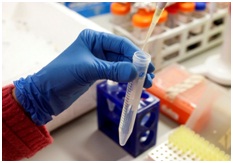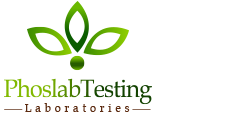- HOME
- Services
- Environmental Testing
- BTEX Testing Services
- Volatile Organic Compound (VOC) Testing
- Total Recoverable Petroleum Hydrocarbons Testing and Analysis
- Pesticide Testing and Analysis
- Polycyclic Aromatic Hydrocarbons Testing
- Hazardous Waste
- Wastewater Testing
- Soil Testing
- TCLP Testing
- SPLP Testing
- RCRA Metals TCLP Analysis
- Agriculture Testing Laboratory
- Brownfield Testing Laboratory
- Mineral Testing Laboratory
- Chemical Testing Laboratory
- Field Sampling
- Phoslab Environmental Consulting
- Resources
- About Us
- Contact Us
- PhosBlog
Call Us Toll Free! (863) 682-5897
NELAC & NELAP Certification & Accreditation
Phoslab Environmental Testing Services
 Phoslab Environmental Laboratories, in Lakeland, FL, is proud to be a NELAP-certified environmental testing laboratory. The distinction is a sign of the commitment that Phoslab Environmental has to providing consistent and high-quality environmental testing services.
Phoslab Environmental Laboratories, in Lakeland, FL, is proud to be a NELAP-certified environmental testing laboratory. The distinction is a sign of the commitment that Phoslab Environmental has to providing consistent and high-quality environmental testing services.
Obtaining NELAP certification is not simply an honor. It also signifies that because of its high standards, Florida state and certain federal agencies will accept data and analysis from Phoslab. A copy of Phoslab’s 2016-2017 certification can be viewed here and the scope can be viewed here.
NELAC certification goals
NELAP is the National Environmental Laboratory Accreditation Program. This national accreditation program was created by The NELAC Institute (TNI). NELAC refers to the National Environmental Laboratories Accreditation Conference and was developed in order to provide a consistent set of standards for environmental laboratories, in a manner similar to ISO (International Organization for Standardization)standards, based on a consensus process.
The goal of the NELAC Institute is to promote the gathering of environmental data in a transparent and uniform way to promote quality and reliability. It envisioned a national accreditation program to ensure the technical competence of entities seeking accreditation, thereby
improving the quality of data used by federal and state agencies. These goals are completely in line with the commitment of Phoslab Environmental Laboratories, which is dedicated to high-quality reliable data based on state of the art technology and an informed approach.
NELAP certification areas
Available areas of accreditation under the NELAP program range from comprehensive to medium-specific (air, soil, drinking water, hazardous waste, etc.). Accreditation can also be focused on specific EPA regulatory programs such as the Comprehensive Environmental Response, Compensation, and Liability Act (CERCLA), Clean Air Act (CAA), Clean Water Act (CWA), Resource Conservation and Recovery Act (RCRA), and Safe Drinking Water Act (SDWA).
- Phoslab Environmental is accredited in the following categories:
- Non-Potable Water – Extractable Organics
- Non-Potable Water – General Chemistry
- Non-Potable Water – Metals
- Non-Potable Water – Pesticides – Herbicides – PCB’s
- Non-Potable Water – Volatile Organics
- Solid and Chemical Materials – Extractable Organics
- Solid and Chemical Materials – General Chemistry
- Solid and Chemical Materials – Metals
- Solid and Chemical Materials – Pesticides – Herbicides – PCB’s
- Solid and Chemical Materials – Volatile Organics
As a national program, the NELAP establishes consistency among states and offers reciprocity among participants. As more states implement environmental programs that require data provided by NELAP-accredited laboratories, the reciprocal agreement allows businesses and property owners to comply with programs even in states that do not have their own accrediting body.
Compliance with NELAP standards
The NELAP standard comprises seven modules
- Module 1 – Proficiency Testing
- Module 2 – Quality Systems General Requirements
- Module 3 – Quality Systems for Asbestos Testing
- Module 4 – Quality Systems for Chemical Testing
- Module 5 – Quality Systems for Microbiological Testing
- Module 6 – Quality Systems for Radiochemical Testing
- Module 7 – Quality Systems for Toxicity Testing
Within the modules, standards apply to every step of the sample collection and analysis process. Some examples include:
- Chain of custody requirements
- Instrument calibration verification
- Constant and consistent test conditions
- Data integrity procedures
- Selection of methods
- Limits of Detection and Limits of Quantification
- Methods for reporting results
- Electronic instrument maintenance records
- Assessor training requirements
The standards recognize that quality assurance is necessary at every step of the environmental testing process. Industries and municipalities across Florida trust Phoslab to uphold these standards with their own environmental testing needs.
NELAP certification in Florida
To receive NELAP accreditation, a laboratory must apply to the accrediting body (AB) in its home state, if available. The laboratory may apply to any other AB if the state does not have an AB agency or it does not cover the relevant program.
The NELAP ABs are state agencies, such as departments of health, that have applied to TNI and demonstrated adherence to NELAP standards. ABs can seek accreditation in all EPA regulatory programs or only one or a few.
The following states are recognized by NELAP as Accredited Bodies:
- Florida
- Illinois
- Kansas
- Louisiana
- Minnesota
- New Hampshire
- New Jersey
- New York
- Oregon
- Pennsylvania
- Texas
- Utah
- Virginia
The State of Florida Department of Public Health, Bureau of Public Health Laboratories is recognized by NELAC as a NELAP AB. It has certified Phoslab Environmental Laboratories for the examination of environmental samples in ten categories. Phoslab’s certifications are renewable annually, dependent on ongoing compliance with NELAC standards and Florida Administrative Code regulations.
Choose a NALAP certified environmental testing lab in Florida
When it comes to partnering with a NALAP – certified lab, property owners, construction managers, municipalities, and business owners across the state of Florida choose Phoslab Environmental Laboratories.
Phoslab is committed to delivering quick and accurate results based on the latest technology and consultation with its staff of chemists, biologists, and other scientific professionals and stand-out customer service. Since Phoslab has also received NALAP accreditation, customers can also be confident that their sample analysis will comply with the submission requirements of environmental programs such as Florida’s Petroleum Restoration Program.
When planning your environmental testing protocol, speak with a Phoslab professional to discuss whether your plan is compliant with applicable standards.
